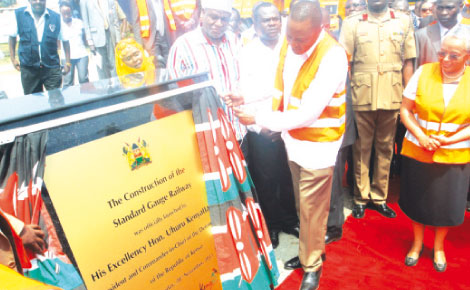×
The Standard e-Paper
Smart Minds Choose Us
 |
| President Uhuru Kenyatta commissions the standard gauge railway project on November 29, 2013. [Photo: File/ Standard] |
By Juma Kwayera
Kenya: The controversy over Kenya’s second railway tender is expected to escalate following fresh revelations that the State Law Office had raised a stink over what it terms exaggerated construction costs.